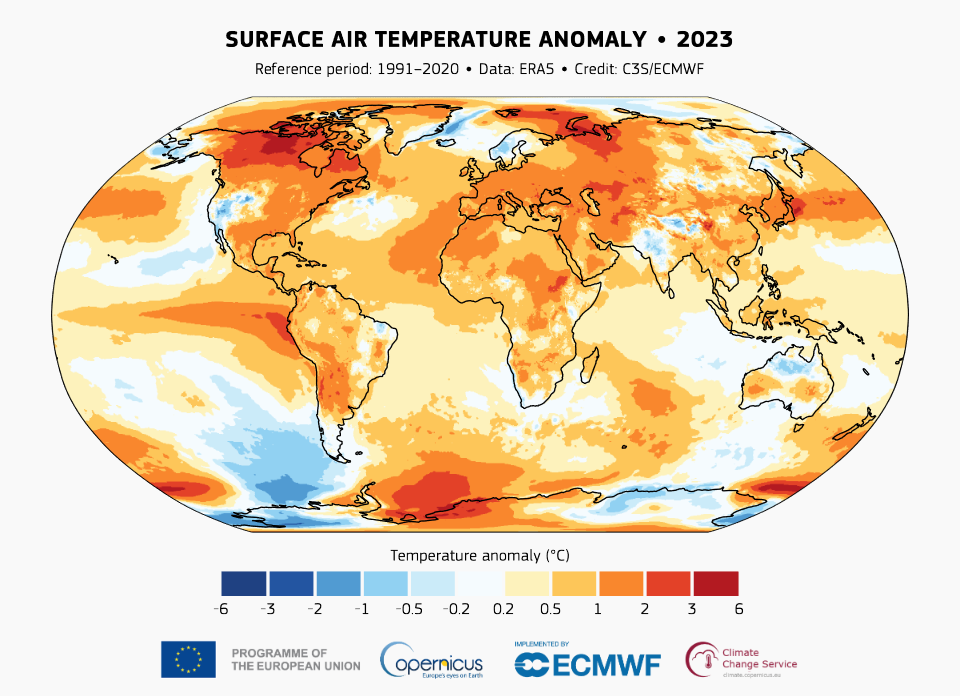
2023 was hottest year on record, new Copernicus report shows
The new Copernicus Global Climate Highlights 2023 Report shows record-breaking climate conditions in 2023. It also finds that it is likely that a 12-month period ending in January or February 2024 will exceed pre-industrial levels by 1.5°C.


